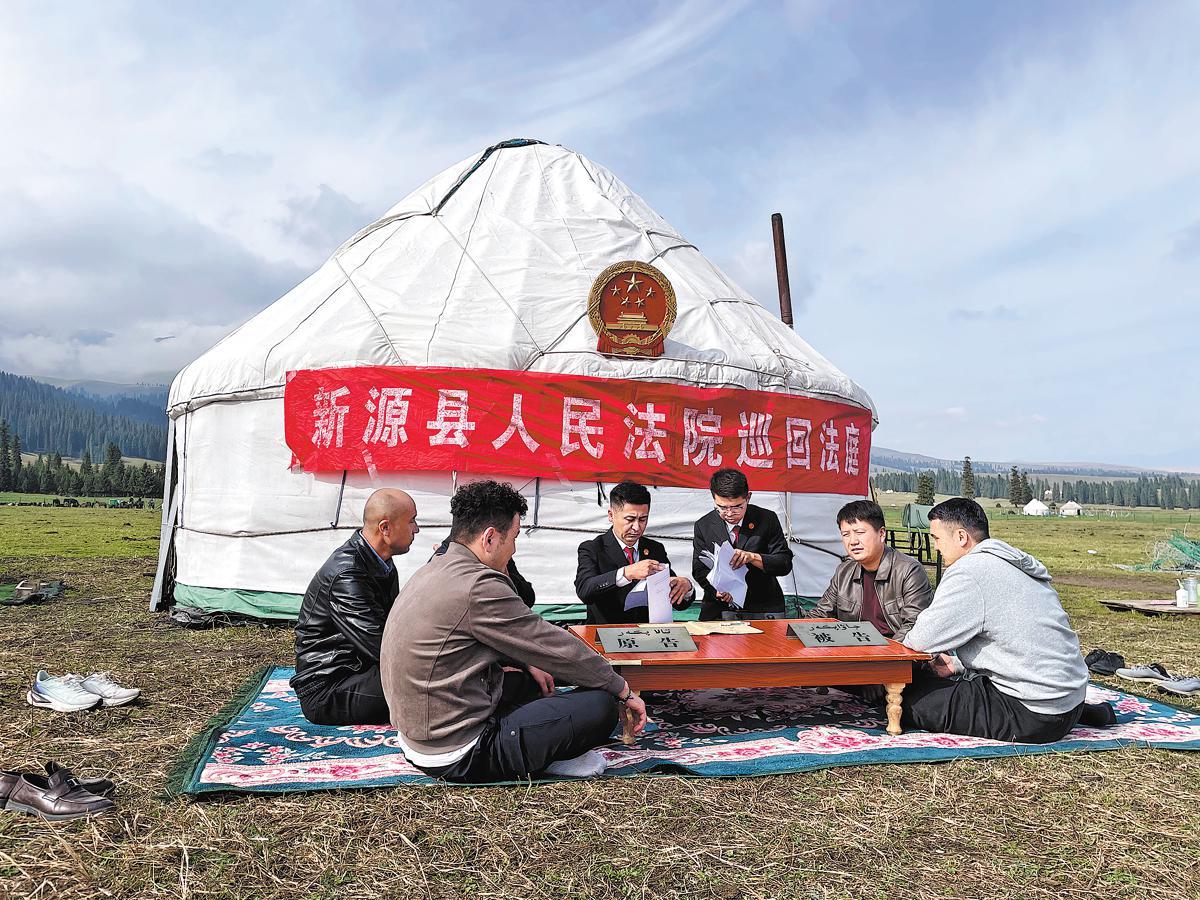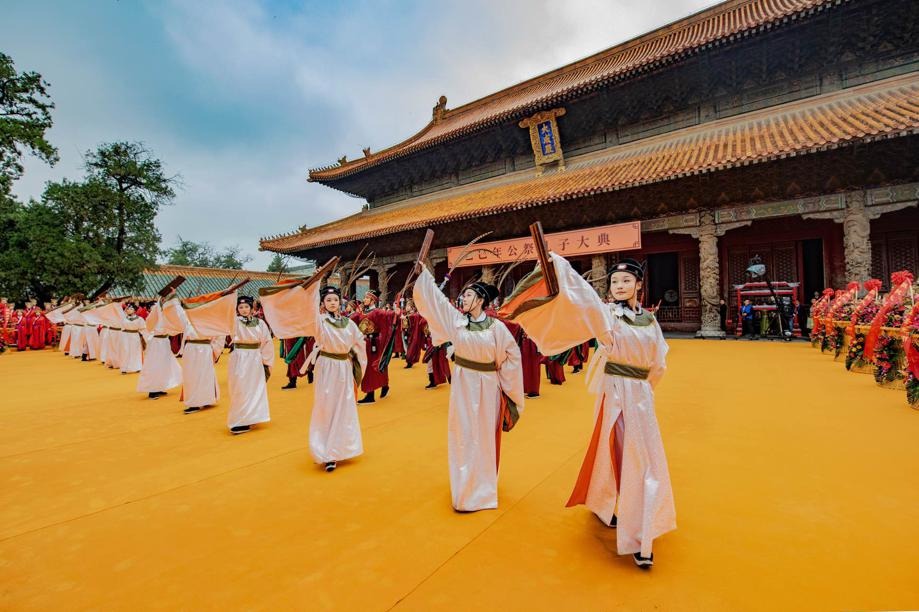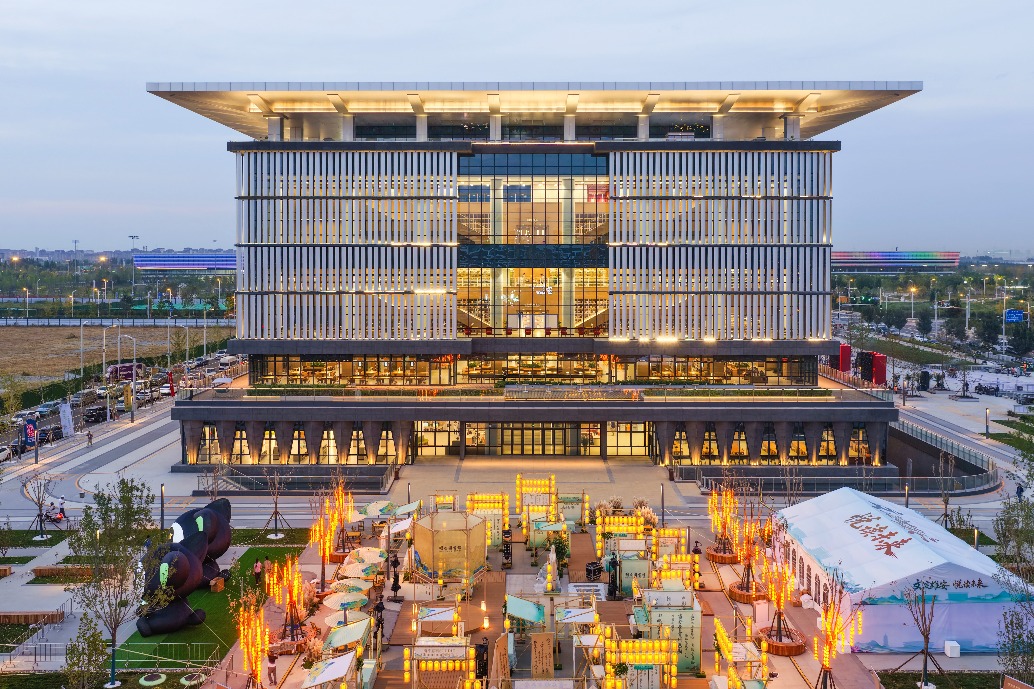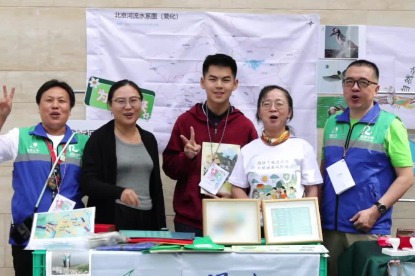Grassland justice delivered on horseback


Each year, as the grazing season begins on the Narat grassland of Ili, Xinjiang Uygur autonomous region, judge Aytnur Bolatbek and his legal team can be found on horseback crisscrossing the pastures between yurts and herding paths.
Their mission is to assist herders and tourists in resolving disputes on the grassland, an innovative initiative introduced by the Narat tribunal under the court in Xinyuan county.
"Tourists come from all over the country, and herders live in remote, scattered locations. So we bring legal services directly to them, making it easier for them to address conflicts on the spot," said Aytnur, the chief judge of the tribunal. This mobile judiciary is particularly active during summer, with the team setting up two to three times a month.
Summer marks the peak of tourism in Xinjiang's Ili Kazak autonomous prefecture, drawing visitors with its natural beauty and cultural heritage. According to data from the local department of culture and tourism, the prefecture received 54.93 million domestic visits from January to July, up 10.31 percent year-on-year.
To address disputes at their origin, 15 mobile units similar to Narat's have been set up in key tourist locations throughout the prefecture. These tribunals are staffed with judges who speak the languages of local ethnic groups and offer a fast channel for handling tourism-related cases.
This approach facilitates case filing, mediation and trials right at the scenic spots and at the doorsteps of local residents, ensuring that justice is both timely and accessible.
In July last year, a 73-year-old tourist surnamed Chen suffered a leg injury after falling off a horse in the Narat scenic area, and had a dispute with the horse rental business over compensation.
Aytnur arrived at the scene after receiving a call, and patiently explained legal provisions to both parties and coordinated with a third-party assessor to determine a fair compensation amount.
Ultimately, the horse rental business agreed to pay Chen 40,000 yuan and promised to cover any reasonable additional medical expenses.
"Tourists usually have limited time and don't want disputes to disrupt their itinerary or mood during their holiday travels. Therefore, a quick response and efficient resolution are key to handling such tourism-related disputes," Aytnur said.
Gulzar Pazula, deputy head of the litigation service center of the Xinyuan court's case-filing division, said they have opened public legal service centers at the entrances of scenic areas and asked judges, together with mediators and industrial experts, to improve the efficiency of resolving disputes.
"The case handling processes will also become legal lessons for more residents and visitors, effectively enhancing their legal awareness," Gulzar said. The court has also taken the initiative to cooperate with other authorities, such as government departments and social institutes, to promote integrated cultural and tourism development by the rule of law.
Beyond assisting tourists, the Narat tribunal also addresses the concerns of herders at their doorsteps. In March last year, for example, a dispute arose between two brothers over the management of a pasture following their father's death. Their mother preferred the younger son to manage the pasture, while the older son insisted on equal division. The conflict between the two erupted after the older brother privately leased the pasture to someone else.
To prevent further conflict, Aytnur and his team, along with the grassland supervision department, local justice bureau and village committee, went to the brothers' home. They explained the Chinese Grassland Law and relevant regulations to them, clarifying that the grassland in the country should be managed based on the principles of household contracting, long-term stability and no unauthorized subleasing. The team also convinced the brothers to manage the pasture together, rekindling family ties.
Thanks to the collective efforts, the dispute was resolved through mediation. The brothers agreed to jointly manage the pasture and prohibit unilateral authorization of external use.
"If the case had gone to litigation, it might have further strained the brothers' relationship," Aytnur said. "The mediation could safeguard the legitimate rights of both sides while maintaining the family harmony and regional stability."
Tan Ting, chief judge of the first civil division of the Xinjiang High People's Court, said that there are 275 similar tribunals across Xinjiang's grassland pastures, desert oases, towns and villages.
The number of disputes resolved by these tribunals has risen from some 30,000 in 2020 to over 100,000 last year, Tan said.
She added that judicial teams and innovative measures will continue to be expanded in Xinjiang to provide residents and tourists with easier access to legal services, in a bid to further advance local tourism and cultural development.





































